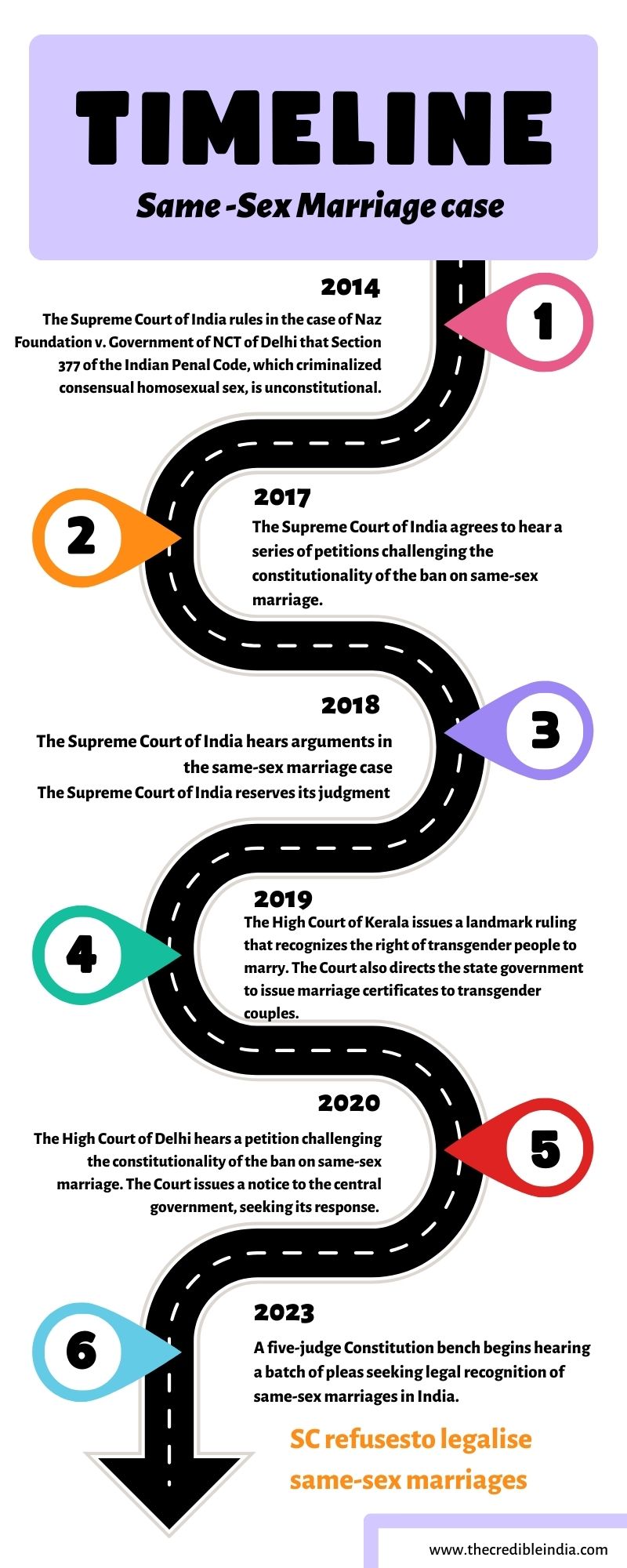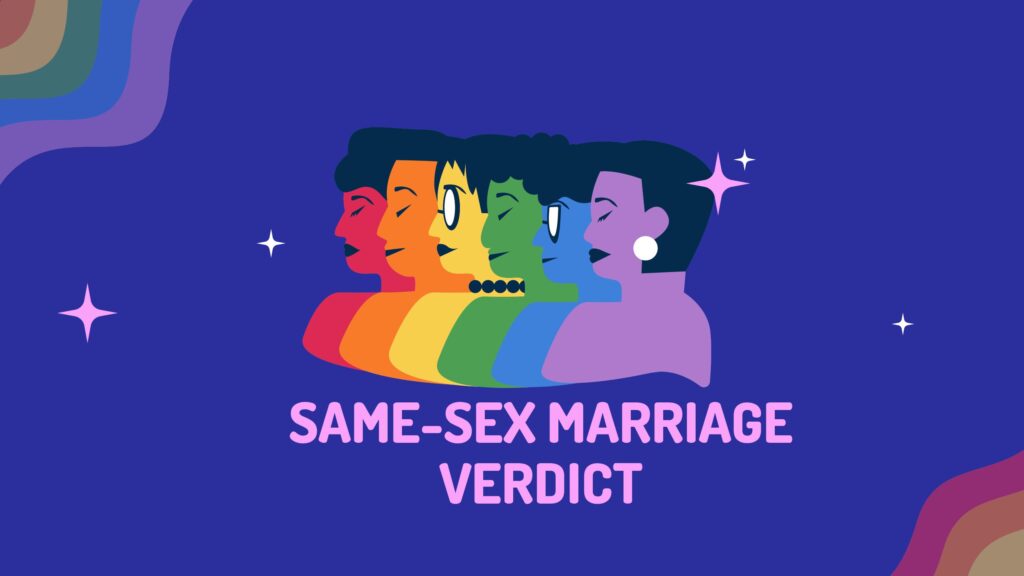New Delhi: A 5-judge bench of the Supreme Court of India, led by Chief Justice of India DY Chandrachud, ruled against legalizing same-sex marriage in India. The bench, also comprising Justices Sanjay Kishan Kaul, Ravindra Bhat, Hima Kohli, and PS Narasimha, held that the Special Marriage Act, 1954, which governs marriages between people of different religions or castes, did not apply to same-sex couples.
While the CJI acknowledged that the LGBTQ+ community had been denied their fundamental rights for long, he said that the court could not legislate on the issue of same-sex marriage and that it was for Parliament to do so.
Can’t hold Special Marriage Act unconstitutional just because it doesn’t recognize same-sex marriages. Also, we cannot compel Parliament or state assemblies to create a new institution of marriage: CJI DY Chandrachud
The court’s ruling comes as a setback for the LGBTQ+ community in India, which has been fighting for the legalization of same-sex marriage for many years. However, the community has vowed to continue its fight for equality and human rights.
It is important to note that the court’s ruling is not final and can be appealed against. The LGBTQ+ community is likely to file a review petition against the verdict.
The case so Far
Same-sex marriage is not currently legal in India. However, there have been significant developments in recent years, and the issue is now being actively debated in the courts and in society at large.
In 2014, the Supreme Court of India ruled in the case of Naz Foundation v. Government of NCT of Delhi that Section 377 of the Indian Penal Code, which criminalized consensual homosexual sex, was unconstitutional. This was a major victory for the LGBTQ+ community in India, and it paved the way for further progress on the issue of same-sex marriage.

In 2018, the Supreme Court heard a series of petitions challenging the constitutionality of the ban on same-sex marriage. The Court reserved its judgment in the case, and it is still pending.
In the meantime, there have been a number of other positive developments. In 2019, the High Court of Kerala issued a landmark ruling that recognized the right of transgender people to marry. The Court also directed the state government to issue marriage certificates to transgender couples.
In 2020, the High Court of Delhi heard a petition challenging the constitutionality of the ban on same-sex marriage. The Court issued a notice to the central government, seeking its response. The case is still pending.
The issue of same-sex marriage is a complex one, and there are a variety of views on the subject. However, it is clear that there is a growing movement in India in favor of same-sex marriage. The LGBTQ+ community is increasingly vocal in its demands for equality, and the courts are beginning to take a more progressive approach to the issue.
It is difficult to say when same-sex marriage will be legalized in India. However, the recent developments suggest that it is only a matter of time before LGBTQ+ couples in India are able to marry the person they love.

